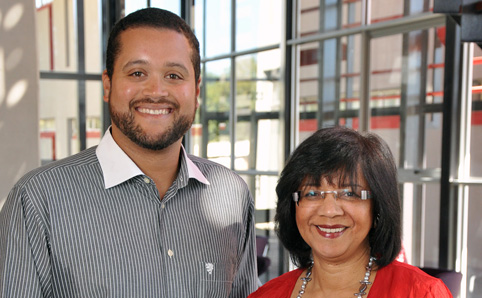Latest News Archive
Please select Category, Year, and then Month to display items
14 June 2024
|
Story Anthony Mthembu
|
Photo Suplied
 Jeremiah Hlahla, a UFS student completing his PhD in Botany at the University of Debrecen as part of an exchange initiative funded by the Erasmus+ Mobility Programme.
Jeremiah Hlahla, a UFS student completing his PhD in Botany at the University of Debrecen as part of an exchange initiative funded by the Erasmus+ Mobility Programme.
As part of an exchange initiative facilitated by the Erasmus+ Mobility Programme, Jeremiah Hlahla, a student at the University of the Free State (UFS), is nearing the completion of his PhD studies at the University of Debrecen in Hungary. Hlahla’s journey, which began in February 2024 and is set to conclude in July 2024, has been a remarkable learning opportunity. “As a first time-traveller to Europe, I have thoroughly enjoyed engaging with people from different countries and cultures,” he said.
The benefits of international collaboration
Hlahla is currently pursuing a PhD in Botany, focusing on plant stress physiology. “My current PhD project investigates the physiological, biochemical and morphological responses of vegetable-type soybean, or edamame, to combined drought and heat stress,’’ he explained. He considers the University of Debrecen the ideal institution to complete his research due to its extensive expertise and resources in similar projects. He noted that his colleagues at Debrecen conduct significant work on plant protection against biotic and abiotic stresses, including salt and drought stress, as well as proteins and amino acids in barley and other legumes.
Given the vast knowledge available on similar projects, Hlahla has found substantial engagement with his work at the University of Debrecen. “Upon arrival, I delivered an introductory lecture presenting my UFS project on the synergistic effects of combined drought and heat stress on the physiology and biochemistry of edamame. It was an engaging session as everyone could relate to my work and asked many questions,’’ he said.
Insights gained from the exchange
Hlahla has also gained valuable lessons that will assist him in his research career, including biotechnology and physiology tools. “I learned how to prepare samples and use high-performance liquid chromatography (HPLC) and reversed-phase ultra-high-performance liquid chromatography (UHPLC) to quantify proteins and amino acids,’’ he said. These techniques are beneficial not only for his current work but will also support future soybean research.
As his experience at the University of Debrecen nears its end, Hlahla reflects on the collaborations and friendships he has formed, which stand out as a significant highlight.
Social entrepreneurship important to eradicate poverty
2012-03-30
 |
|
Here are Rhoda Kadalie and Mark Lotter at the Business School
Photo: Stephen Collett
30 March 2012
|
Renowned South African human activist and popular columnist Rhoda Kadalie recently visited the Business School to lecture on social entrepreneurship.
Ms Kadalie has been the Executive Director of Impumelelo since 1999. This organisation rewards innovative government and civil society initiatives that improve social service delivery in the eradication of poverty in South Africa.
She was accompanied by Mr Mark Lotter, Fundraiser and Marketing Manager of Impumelelo. Mr Lotter did a presentation on ground-breaking achievements using best-practice South African case studies, e.g. the Mariannhill Landfill Conservancy, Phelophepa Health Train and mothers2mothers.
They elaborated on the principles underlying the work and contributions of Impumelelo to the future well-being of the nation. It was clear from the lecture and the discussions that followed by MBAs, under- and postgraduate students from different faculties, as well as members of the university community, that the debate on social entrepreneurship is highly relevant, much needed and very important.